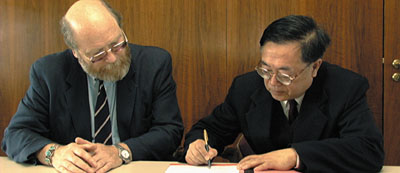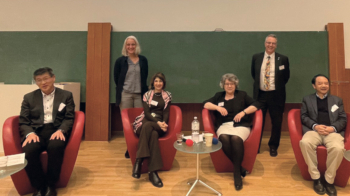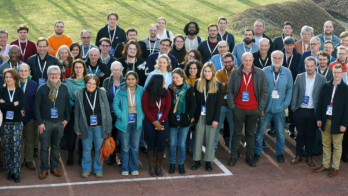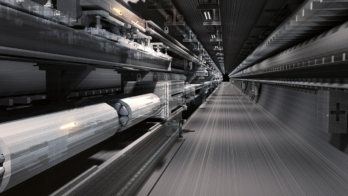
Underlining the worldwide involvement in the programme at CERN’s LHC collider, a milestone agreement brings funding from Chinese bodies for the LHC CMS experiment.
Chinese physicists have long participated in CERN’s programme, notably in the L3 experiment. The new agreement includes the Chinese National Natural Science Foundation, the Institute of High Energy Physics (IHEP) in Beijing, and the universities of Peking and of Science and Technology in Hefei.
A major CMS contribution from China will be the endcap support “carts” for the magnet yoke, which will be made by Chinese industry. A protocol allowing production to begin was signed last year between CERN, acting on behalf of CMS, and the Chinese National Academy of Sciences.
The Chinese will also contribute detector parts, largely via a collaboration between IHEP and Fermilab. A similar collaboration involves Fermilab and the St Petersburg Nuclear Physics Institute in Russia. They will produce cathode strip chambers (CSCs) for the CMS muon-detection system. Fermilab will equip the other institutes with the raw materials and tooling to produce the 648 CSCs. The detector will cover more than 1300 sq. m.
Also covered by the new Chinese agreement is a project involving Peking University that will make a major contribution to resistive-plate chambers (RPCs) for the CMS muon-detection system in collaboration with other institutions, in particular from Italy. RPCs respond rapidly to passing particles and trigger the data acquisition system to read out the detector when interesting collisions occur.
China is also building electronics for the CMS muon detector through a collaboration between Chinese and Italian institutes.





